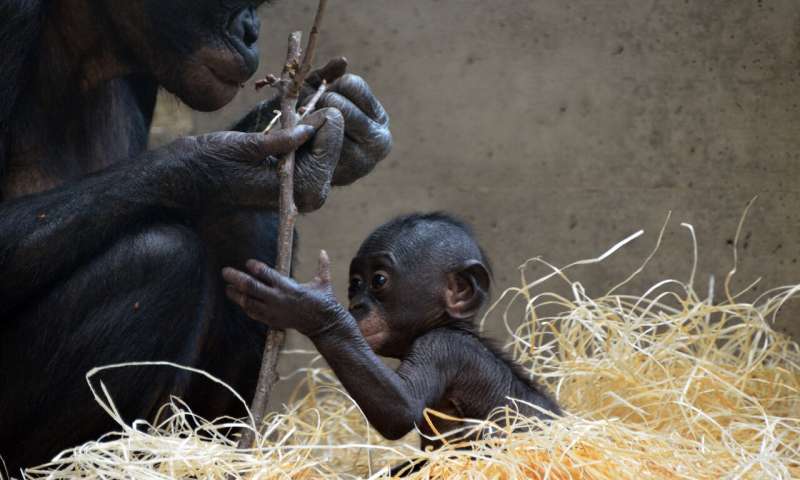

1.dexterity (n)
skill in performing tasks, especially with the hands
2. anthropology (n)
the study of human societies and cultures and their development
3. offspring (n)
the product or result of something
4.species (n)
a group of living organisms consisting of similar individuals capable of exchanging genes or interbreeding
5. biologist (n)
an expert in or student of the branch of science concerning living organisms
Big brains and dexterous hands

People are very skilled with their hands, but take a very long time to learn various dexterous abilities. It takes babies generally around five months before they can purposely grip an object. Learning more complicated skills such as eating with a fork and knife or tying one’s shoelaces can take another five to six years. By that age, many other primate species already have offspring of their own. Why do we take so much longer than our closest relatives to learn fine motor skills?
Brain development in primates follows fixed patterns
Sandra Heldstab, an evolutionary biologist in the Department of Anthropology at the University of Zurich, observed 36 different primate species over a period of more than seven years to try to answer this question. She studied 128 young animals in 13 European zoos from birth until the age at which they had reached adult-level dexterity. What surprised her was that all species learned their respective manual skills in exactly the same order. “Our results show that neural development follows extremely rigid patterns — even in primate species that differ greatly in other respects,” says Heldstab.
Large brain needed for dexterity
The researchers found, however, big differences in the specific fine motor skills of adults from different primate species. Large-brained species such as macaques, gorillas or chimpanzees can solve much more complex tasks using their hands than primates with small brains such as lemurs or marmosets. “It is no coincidence that we humans are so good at using our hands and using tools, our large brains made it possible. A big brain equals great dexterity,” says Heldstab.
Humans develop fine motor skills later than primates
Dexterity comes at a cost, however: In species with large brains like humans, it takes a long time for infants to learn even the simplest hand and finger movements. “It’s not just because we are learning more complex skills than lemurs. The researchers think that the reason for this may be that the larger brains of humans are less well developed at birth.
Essential to have enough time to learn
In addition, learning takes time and is inefficient, and it is the parents who pay for this until their offspring are independent. Only mammals that live a long time and have enough time to learn were able to develop a large brain and complex fine motor skills including the ability to use tools. This makes it clear why so few species could follow our path and why humans could become the most technologically accomplished organism on this planet,” concludes Sandra Heldstab.
Resource: https://www.sciencedaily.com/releases/2020/07/200724141034.htm

- What are some extraordinary things some people can do with their brains?
- What is the most amazing thing about the brain?
“It is a great thing to have a big brain, a fertile imagination, grand ideals, but the man with these, bereft of a good backbone, is sure to serve no useful end.”
George Matthew Adams

 Advanced
Advanced
